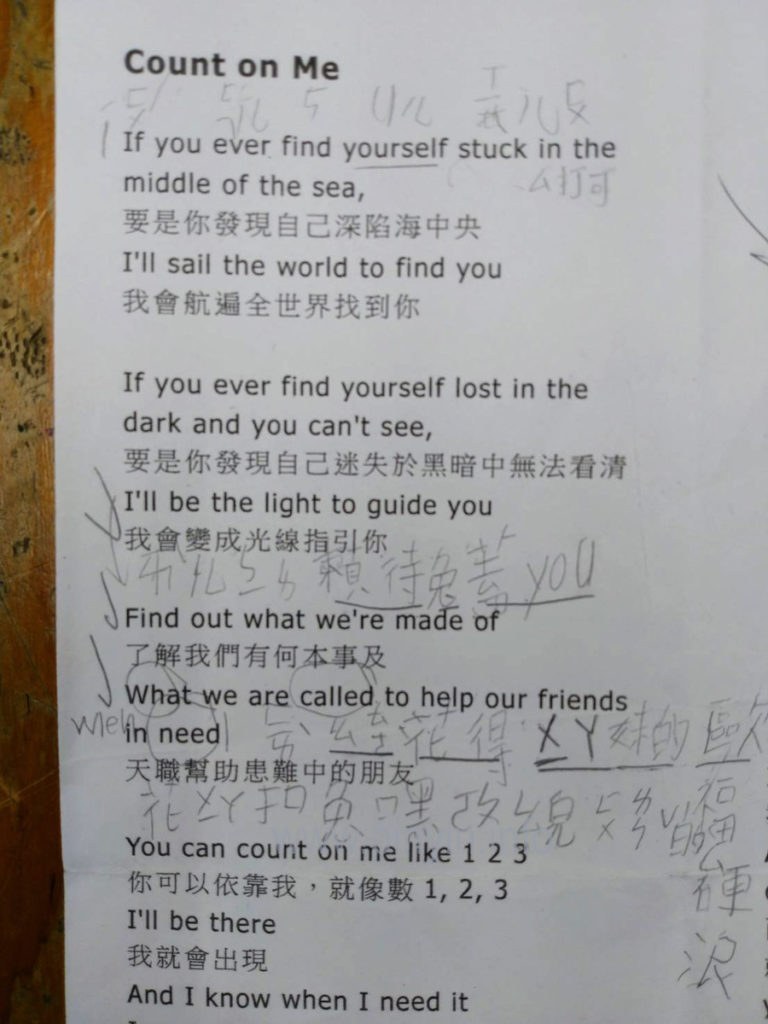It’s times like this I especially miss John DeFrancis. How he would have loved this! It’s partially an example of what he dubbed “Singlish” — not Singapore English but Sino-English, the tortured attempt to use Chinese characters to write English. He details this in “The Singlish Affair,” a shaggy dog story that serves as the introduction to his essential work: The Chinese Language: Fact and Fantasy. (And I really do mean essential. If you don’t have this book yet, buy it and read it.)
Here are some lyrics from a popular song, “Count on Me,” by Bruno Mars, with a Mandarin translation. The interesting part is that a Taiwanese third-grader has penciled in some phonetic guides for him or herself, using a combination of zhuyin fuhao (aka bopo mofo) (sometimes with tone marks!), English (as a gloss for English! and English pronunciation of some letters and numbers), and Chinese characters (albeit not always correctly written Chinese characters — not that I could do any better myself). Again, this is a Taiwanese third-grader and so is someone unlikely to know Hanyu Pinyin.
“If you ever find yourself stuck”
If |
ㄧˊㄈㄨˊ |
yífú |
| you | ||
| ever | ㄟㄈㄦ | ei-f’er |
find |
5 |
five |
| yourself | Uㄦㄒㄧㄦㄈㄨ | U’er xi’erfu |
stuck |
ㄙ打可 |
s-dake |
“I’ll be the light to guide you.”
I’ll |
ㄞㄦ |
ài’er |
be |
ㄅㄧ |
bi |
| the | ㄌ | l[e] |
light |
賴特* |
laite |
| to | 兔 | tu |
guide |
蓋 |
gai |
you |
you |
you |
“Find out what we’re made of”
Find |
ㄈㄞˋ |
fài |
out |
ㄠㄊㄜ |
ao-t’e |
what |
花得 |
huade |
we’re |
ㄨㄧㄚ |
wi’a |
made |
妹的 |
meide |
of |
歐福 |
oufu |
“When we are called to help our friends in need”
花 |
hua |
|
we |
ㄨㄧ |
wi |
are |
ㄚ |
a |
called |
扣 |
kou |
to |
兔 |
tu |
help |
嘿ㄜㄆ |
hei’e-p[e] |
our |
ㄠㄦ |
ao’er |
friends |
ㄈㄨㄌㄣˇ的ㄙ |
fulen-de-s |
in |
硬 |
ying |
need |
[?] |
[?] |

